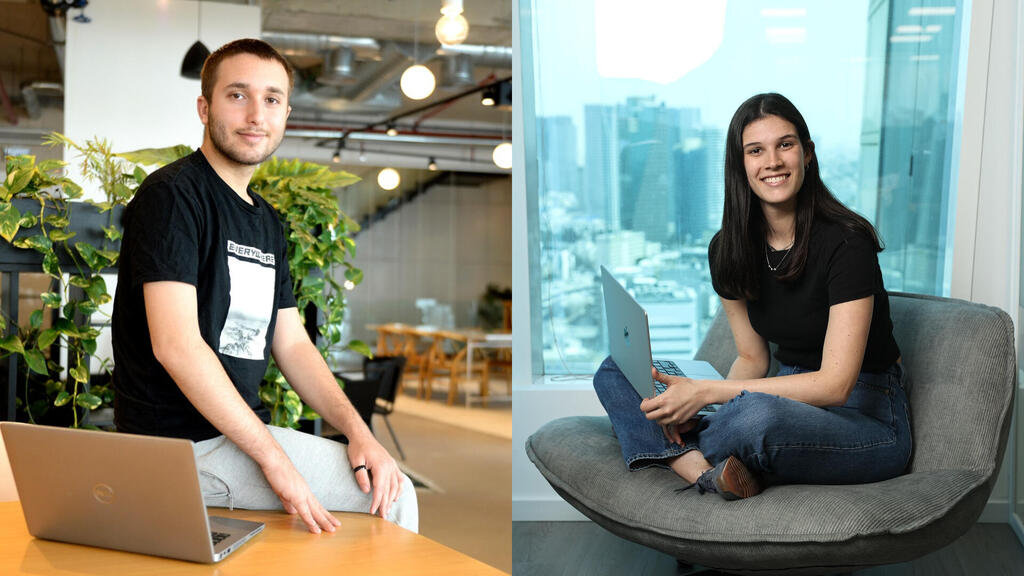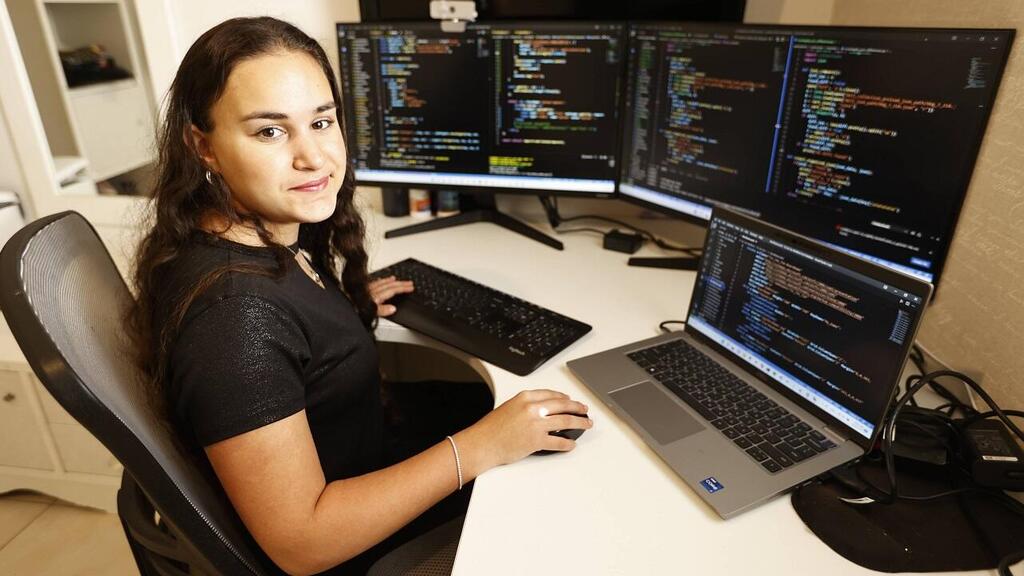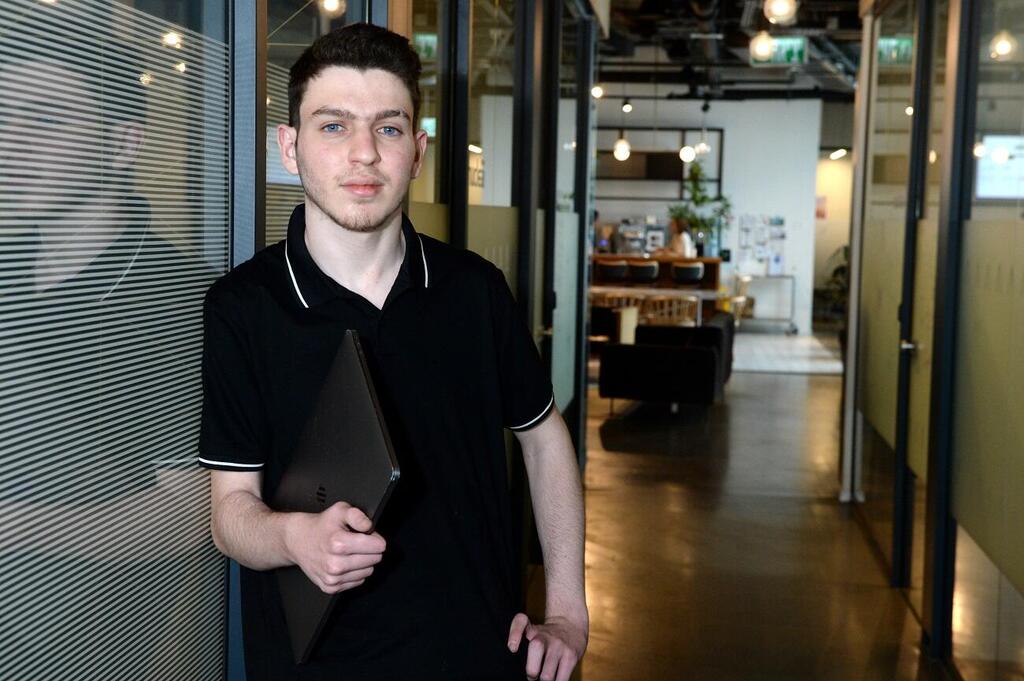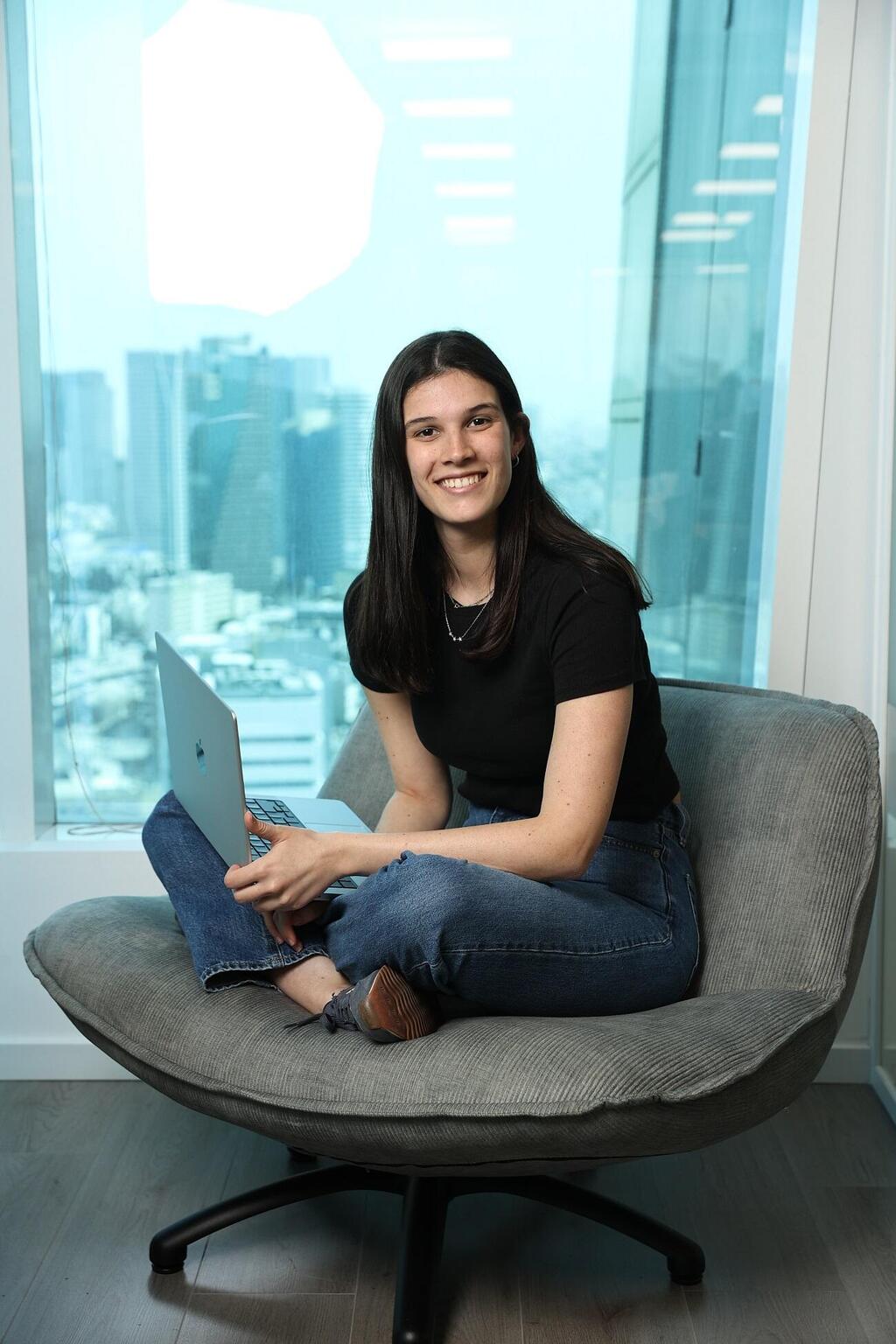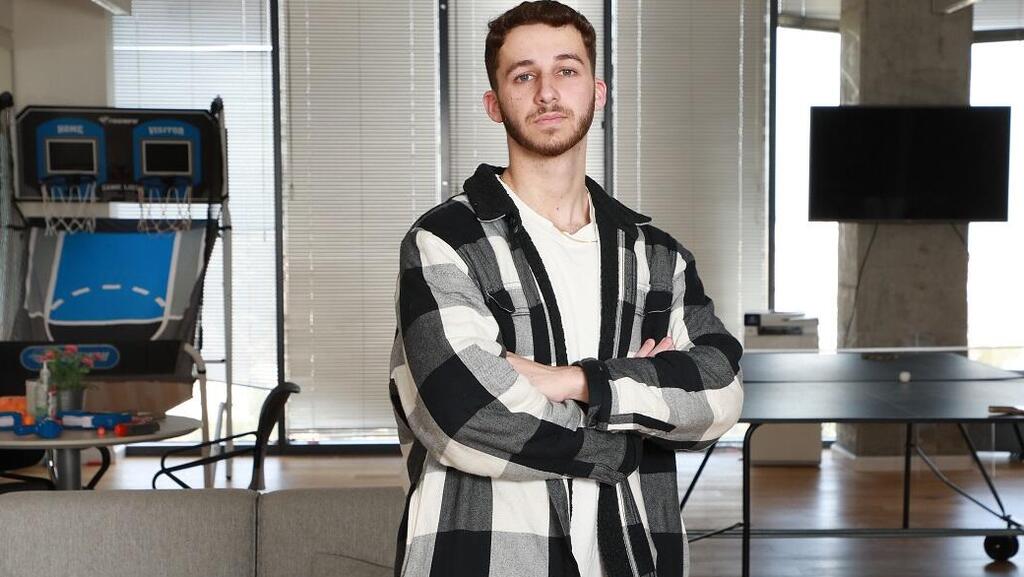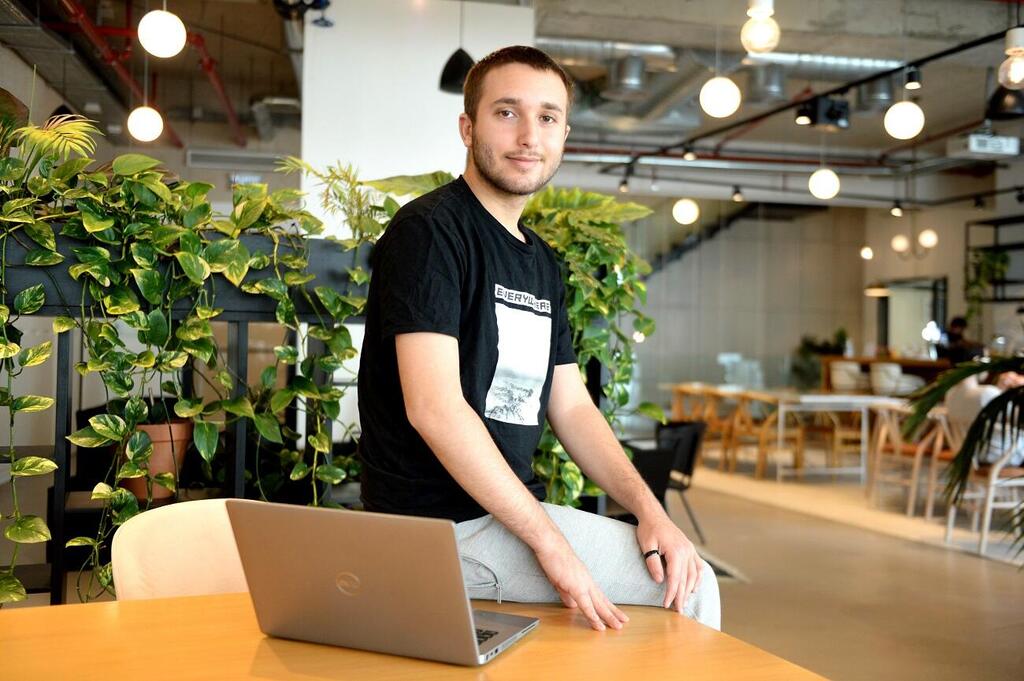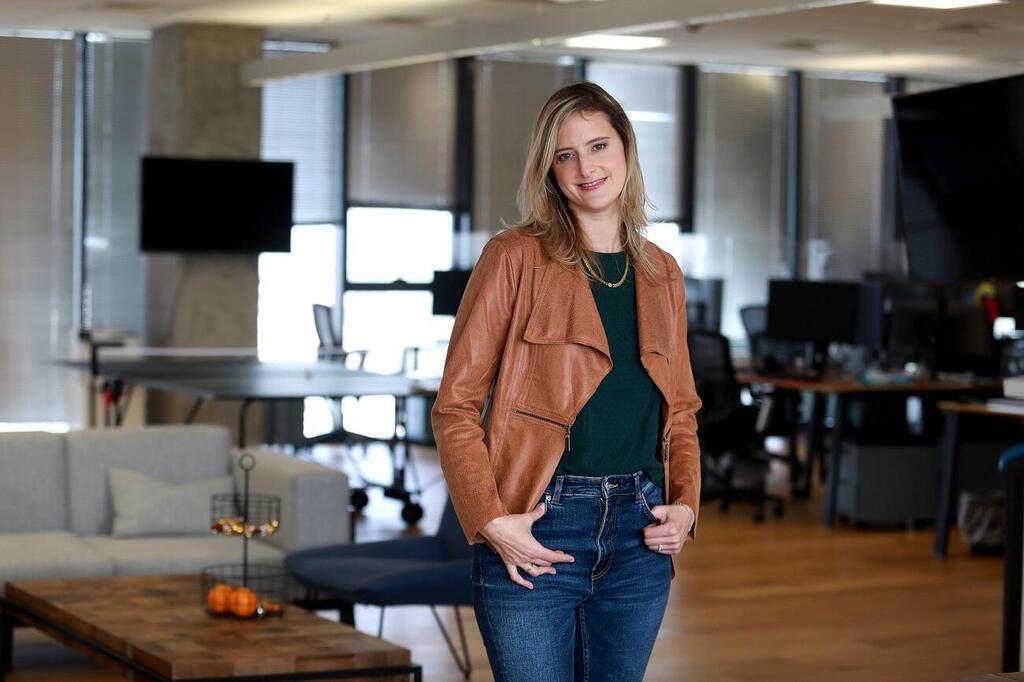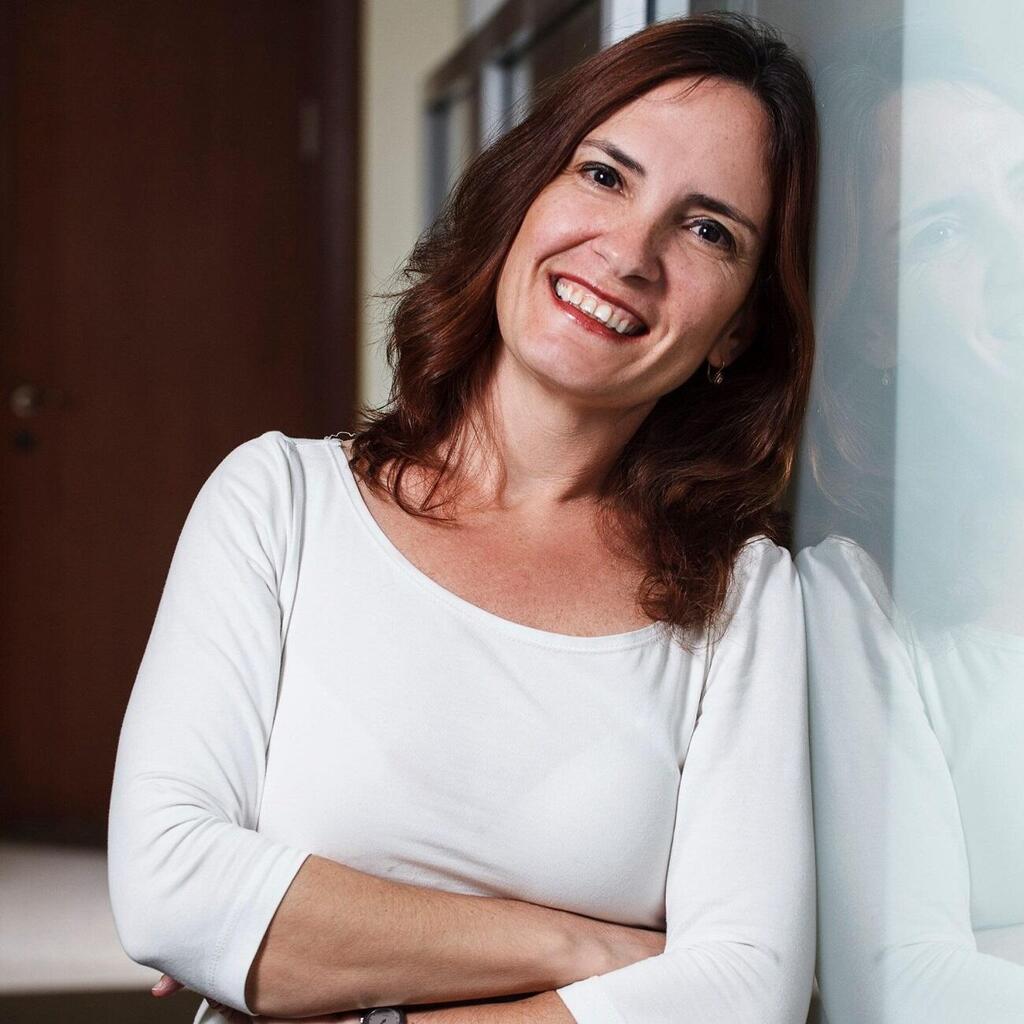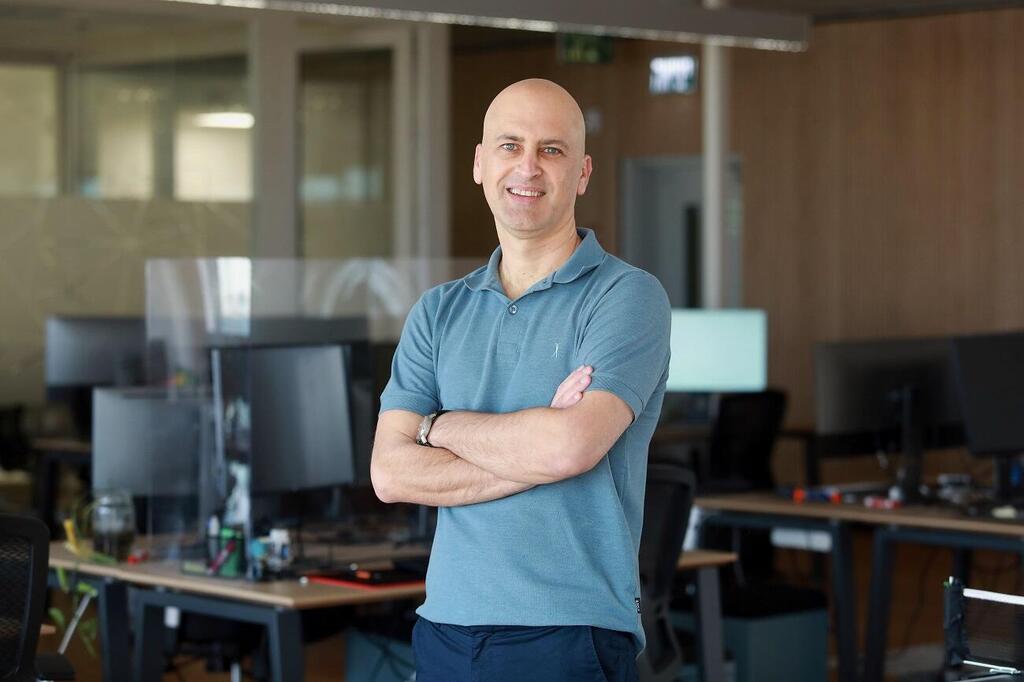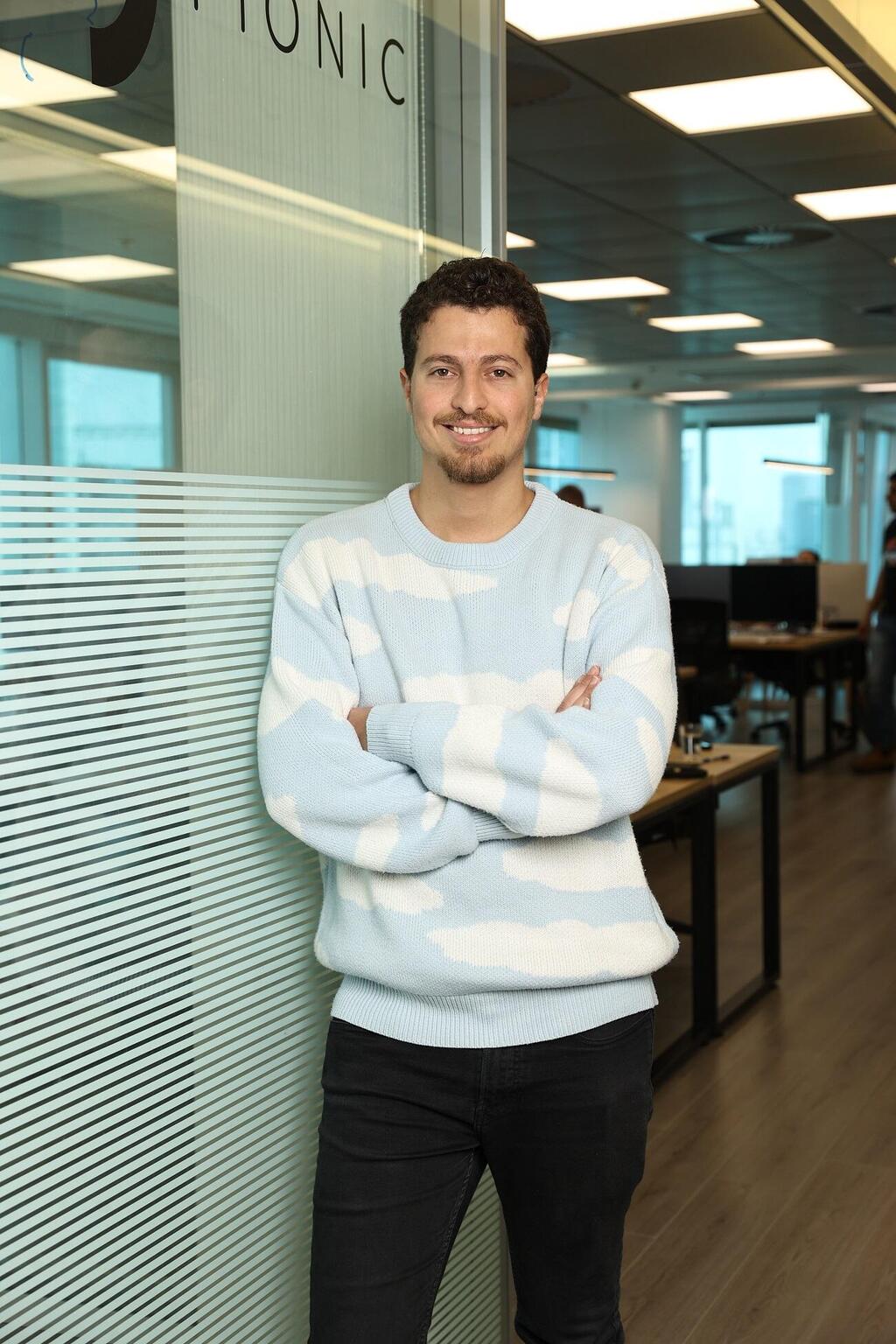These are the rising hi-tech stars, sought after by even the big tech companies. They're successful and "cheap" in an industry forever trying to find workers. They're also cute and modest, but they know what they're worth, sometimes earning salaries those twice their age are dreaming of.
"They're young, they have a fresh way of thinking. They have fire in their eyes," says recruiter Iris Klien.
Meet the "Sharpies" – 11th or 12th grade high school students who postpone their military service to work in high-tech, earning much more than their teachers and parents. Working a few days a week, some of them don't even go to school regularly. They're also open about this being a direct track into the Israeli Intelligence Corps Unit 8200.
They take the bus to the office ("because I don't need a car"), don't touch alcohol during Happy Hour ("there are other things to drink"), are highly respected by both junior and senior staff ("I'm explaining solutions to people in the company") as well as by their friends their own age working in "regular" jobs such as waiting tables and babysitting.
Getting off the bus from her parents' home in Gan Yavneh for another day's work as a programmer and developer at a Tel Aviv start-up, 18-year-old Noga Shemesh explains: "In high-tech, I make three times as much as my friends who are working for 25 shekels an hour."
While her friends carry on going to school, Noga goes to a shiny office building.
What do your teachers say?
"I'm a good student, so they trust me to make up what I miss. They were happy for me that I found a job in hi-tech and that I'm a developer, because the school's purpose is to train students for a profession."
And you earn more than your teachers?
"I don't know. I've never asked them how much they make, but it's not about the money. I recently told my parents that even if they weren’t paying me, I'd still go to work. I've learnt a lot of things that we didn't learn at school: how to work in a team, completing tasks, managing myself, how to talk to older people."
What's the work routine?
"They give you tasks and you do them. If the task is challenging, sometimes you find the solution by yourself online and sometimes you ask other people. People at the company come to me with their questions."
Her family is very supportive. Both her mother, who is a math teacher and her father, who is a computer programmer, were surprised to hear that Noga had been offered a job by a start-up company.
"I was the first female 'Sharpie' employed here. At our company of 200 employees, including support staff, there are only 40 women and teenage girls – so yes, it's mostly boys."
Is this also a springboard to a good position in the army?
"For sure. At recruitment selection, they ask you if you have experience and if you've worked. It's definitely a boost."
She tells her friends: "Instead of working at McDonald's, you should invest time and energy in a job that will carry you forward, broadening your skills and horizons."
Amit Naveh,18, who graduated high school in June, will finish a computer science degree via the Open University in a year's time. He's been working at "Nucleai", an artificial intelligence (AI) based medical start-up. Amit proudly tells me that the start-up raised $33 million last year.
Congratulations on raising so much
"Thank you. It's very exciting. We use AI to adapt cancer treatment for different patients. I assess and map body tissue scans – I give the tagging team tools to tag different kinds of tissue."
OK, let's just say I understood that... What did you have to study for this?
"Math and programming."
When did you learn programming?
"In 9th grade. I took it from there."
He's from Hod Hasharon and has been working from home, but sometimes takes the train into the office at the Azrielli Towers in Tel Aviv and says that it's "cool to work in a field that saves lives, with adults who take my professional recommendations seriously."
He's also happy with the salary. "Because I'm a student, I work by the hour. I'm paid 90 shekels ($28) an hour and there's talk of a pay-rise."
And your parents can only dream of a salary like yours?
"No. They also work in hi-tech."
Hi-tech is flourishing and the literature and humanities departments are left empty.
Amit, however, says that "things like literature, you learn out of interest, not for work".
Maya Keter, 19, from Yehud, who has been working for "Fionic" for almost a year, is studying towards a degree in computer engineering at Bar Ilan University.
"I deferred my army service. I find working in a job like this interesting and challenging. I feel it strengthens me professionally far more than any project I've done for my degree at university, because it's working on a real product with people in the industry on tasks designed to turn an idea into something practical. It's also very empowering when someone with more experience than me is enthusiastic about a solution I present. I'm treated as an equal, like a regular employee. Although I'm the youngest person at the company, I don't feel the age difference."
Her army enlistment date is a year away and she still doesn't know to which unit she'll be assigned, but she's clearly hoping for a tech track.
Yonatan Ehrenreich, 18, from Hod Hasharon develops data synthesis for "Opora", a cyber start-up owned by former Shin Beit (Israel Security Agency) director, Yuval Diskin. Although Yonatan has already passed his driving test, he takes the bus to work.
You work in hi-tech. Buy a car!
He laughs, explaining: "I don't need a car. I live with my parents in Hod Hosharon and I work in Ra'anana at a company founded by intelligence people, which aims to predict hacker cyber-attacks before they happen."
He's been working at the company since last October while finalizing a BA in mathematics and computer science at Bar Ilan University. "I started the degree in 11th grade. I'll start the army when I finish university, and the army's cool with that."
Yonatan is also in hi-tech for neither the money nor the perks. "Until recently, I wasn't allowed to drink alcohol during Happy Hour, but I drank anyway" he laughs. "I'm here because it's fun. I’m learning a lot and acquiring experience. I feel totally part of the company. They treat me nicely, although I'm young."
And when you finish your army service, will you come back to hi-tech?
"I think so. It's where I’m going in life and my family is very supportive. My mother's a nurse and my father's an accountant."
And do you show off about your job to girls you go out with?
"I really don't like showing off about the job."
Tal Shachar, 17, a student at the Netanya's Ort Gutman High School, doesn’t like boasting about his great cyber start-up job either. "Everyone I know knows that I work in cyber. I don't hide it, but I also don't show off about it. It's my job," he explains as naturally as if he was waiting tables.
Tal is enrolled at the Cyber Education Center's "Magshimim," program which nurtures and cultivates computer skills in teenagers, designated for the Shin Beit, from the 10th grade. A teacher on the program suggested he talk to "Sharpies," a company which recruits hi-tech youth and liaises between the Magshimim program and hi-tech companies. "I sent off my résumé and I got a reply for a company. They sent me some exercises which I solved. I then had an in-person interview and another exercise and then they decided to take me on and sent me a contract."
Where do you work?
"I can't talk about it."
Can you at least tell me what you do?
"I started by checking that the system was working. I was gradually put me on another job, coding and developing programs."
And who looked over your contract?
"I read it over with my father who understands these things – he's a team leader at a hi-tech company. We saw that it was good and I started working there in June 2021."
He's very happy with the conditions and the people, who are mostly 20–30-year-old 8200 alumni. I have two other 17-year-olds with me. We like that there's a sense of humor in the office and everything is flexible and easy-going. Hi-tech perks too."
Like what?
"Meals are subsidized. We went away for a trip to Mitzpe Ramon where we slept in a VIP air-conditioned tent. We had a culinary tour in the Carmel Market as well as company events with food and movies. Everything's very adaptable. There's no pressure and I don't feel that I'm working under a strict hierarchy, but rather with other people who like the same things I like. Even though I've got less experience than other people at the company, or if I don't know things, my co-workers accept my opinion and treat me like someone who knows what they're talking about. If I don't understand something, I'm never degraded. People help me and guide me."
And this will also help you in the army?
"We have people who know people in the army and I hope that'll help me in the future. But that's not why I came to work here. Not for the money either. I love what I do. I have the chance to channel the programming language I learnt in the summer holidays between 10th and 11th grade it into something practical. I'm also surrounded my people far more experienced than myself from whom I can learn things that will prepare me for life."
And you earn a lot more that other people your own age?
"I'm very happy with the salary. I'm going to be working more hours after April when my school timetable frees up."
And what do your parents say?
"My mother's happy that I'm happy. It's not that I'm working to support the family, but I help out where I can. I sometimes work long hours, so I'm not there to do what needs to be done at home - like walking the dog."
And Happy Hour?
"I chose not to drink alcohol. We had a company night out at Claro, an upscale Tel Aviv restaurant, and I didn't drink. Even during our weekly Happy Hours in our Open Space, I drink other things. I don't even touch the on-tap Stella Artois on our floor."
Behind all of this is "Sharpies" founder, Tami Rubin. The company connects teens with high-tech companies. She also coined the phrase "Sharpies" (sharp and smart). It all began when, while she working as a recruitment manager for a hi-tech company when she met a 15-year-old boy at a technology conference who "astounded everyone with his knowledge of algorithmic.
The head of our algorithm group offered him an internship on the spot. He was amazing. Our directors then asked me to find more teens. Although a lot of companies in Israel – from small start-ups through to large companies like Intel and Amazon – had been employing teenagers, there wasn't an organized recruitment process designed for them. That's what I set up. They don't all have parents in the industry who can fix them up with jobs."
How do you reach the candidates?
"Through the program for gifted students and BA programs for high-school students at Bar Ilan, Ben Gurion and the Open University through programs such as Future Scientists, Magshimim, Higher Education in High School, the Education Ministry's Department for Gifted and Exceptional Students, the Mofet Network etc. We hold gatherings throughout the year for students on these programs, and tell them about the opportunities of working in high-tech. I'd say that hundreds of teens start working in high-tech every year."
One of Rubin's aims is to advance teens from the Periphery, Israel's outlying areas, regarded as underprivileged, to work in high-tech. "Mainly for teenagers who earn more than their parents and help support the family financially."
She manages a project aiming to identify young talent in co-operation with the Ministry of Education's Southern District and the Ben Gurion University. "They connect us with gifted teens from Dimona, Yeruham and Be'er Sheva."
To become candidates for hi-tech work, the youngsters must pass two technical selection stages: Coding testing, examining the teens' algorithmic thinking and a one-on-one technical interview. If they pass, they have a character test, assessing maturity, motivation, communication etc. All Sharpies must produce both parental and doctor's permission as well as the school timetable, signed by the students' school teacher to be forwarded by Rubin to potential employers.
"As every Sharpie is interviewed by three or four companies, the recruiters know that have to be competitive. They're talented in every sense. We've had two or three companies vying for the same Sharpie," Rubin says proudly. "Almost all of them go on to serve in tech units in the army. It's a win-win situation - for the company, the youngsters and for the army which gets recruits with knowledge and experience that they'd have no other way of acquiring."
Iko Azoulay, Chief Technological Officer (CTO) at Opora where Yonatan Ehrenreich works, says it's very exciting having the youngsters at the company. "I'm getting enormous value from them. It's a great success."
They also cost you less. We can't ignore that.
"Indeed. We started bringing in the youngsters because it's so hard for us to recruit, but it's not because of the relatively low salaries. I'd prefer employing very experienced people for very high pay, but there simply aren't enough workers. The lower pay means I can take on two youngsters instead of one, but I definitely didn't do it to save on salaries. My instincts would be to take on people with experience. In small companies, we definitely don't have the time to teach people until they accrue experience, but my team needed regenerating and the competition is acute. We're not Apple, Google or Amazon and not every start-up can offer ice cream in 24 flavors, so when our HR Director, Dana Matzliach, suggested recruiting out of the box and told me about Sharpies, I admit I was skeptical, but I agreed to check it out. At first, we thought of bringing in one teen, on an experimental basis. Two showed up for the interview. We fell in love with both of them and went for it."
Iris Klien, a top high-tech talent recruiter, says: "Although the Sharpies are young, they very quickly reach mid-senior and even senior levels. The costs are clearly not as they are for experienced developers, so it's very profitable."
She claims that these are exceptionally talented candidates, who after their army service it's hard "to put your hands on." It's a pool of talent which doesn't appear on any social media. "They show up with a lot of knowledge and capabilities for their age and a fresh and open way of thinking. They get into it very quickly. They have fire in their eyes."
How do they fit in at the company?
"The senior workers who train them are receiving a gift. One of our managers was just telling me about his sense of satisfaction from training a young person with such high potential. It diversifies the company, and you learn as you teach. The Sharpies fit in very well at the company. They eat lunch with their teams and enjoy Happy Hour."
And what about the generation gap?
"We feel it. But it's mainly funny and sweet. They're helping us update our slang."
How do you train them for work?
"To familiarize them with the product and company methods, we start by giving them less urgent tasks. Once they've proven themselves and have become more confident (which happens rather quickly), we let them write coding which is part of the product and reaches the customer. They do get it done and it works."
Does their being with you only for a year or two until their go the army cause any problems?
"The fact that they get into it so quickly makes up for the temporary aspect. We get all the benefits of very strong, highly motivated workers, and yes, they're with us for a limited time period. For us, it's worth it. And we're happy that we can make it possible for the army to get soldiers who can contribute so much from the moment they arrive."
Azulay says that the teens who work at his and other companies arrive with proven programming experience from the end of elementary school.
"They start programming at the age of thirteen. They also want to invest the time and energy and they are outstandingly intelligent – geniuses. I wasn't as clever as that at that age."
He enthusiastically tells us that the two youths that he took on to work started deciphering problems and becoming productive within two weeks. "This is record time in the industry. It's unheard of that a worker is proving his value for money within two weeks. Not to mention that they're lovely young people who've contributed very positively to the team atmosphere. I'm moved by them every day. They've brought a spirit of youth into the office. It's great fun with them and we're in love with them."
And they don't need to go to pick up the children from kindergarten
"That too."
And what about the generational gap?
"It's nothing. They guys in the team are only 30. At 46, I’m the oldest in the company."
Asaf Nurick, 32, CTO and co-founder of "Fionic" where Maya Keter works, says that it's a phenomenal experience for a gifted child to do a real job at a real company. "And the more talented they are, the more they are exposed to more satisfying tasks and they can influence the company's value and performance."
Can you think of a youngster who made a breakthrough?
"Definitely. We had a teenage boy who optimized our management system tenfold. We had a girl who used genetic algorithms on parameters in the system that we were trying to decipher, creating a significant optimization, achieving much better results than we were. Letting very bright young people work on problems at the very heart of research and development is definitely productive."
What about continuity? They only work for you for a short time, and then they're in the army.
They generally work six months to a year. Some of them matriculate at the end of 10th grade and defer their military service to allow them to complete a degree, so they have a significant amount of time to contribute to the company. It's worth it for them and it's worth it for the employer."
What kind of salaries are these young geniuses getting?
The average is around 15,000 shekels ($4600) a month for a first full time position. It can get up to around 20,000 shekels ($6200). But even 10,000 shekels ($3000) a month for a teenager is crazy."
How to they react to these figures?
"Some are pleasantly surprised, but some of them have friends in hi-tech who know what hi-tech salaries are. They didn't get so talented and remain economically illiterate. They understand the world in which they live and know what they're worth and what they should be paid. They also interview at more than one place and companies compete for them. You can't pay them less than their market value."
Are you comfortable with the killing off their childhood?
"Oh… forget that... I'm all for childhood, but at 17, they have the opportunity of developing and establishing themselves and they know it's better for them than waiting tables. My development manager was a barista when he was in high school. He still loves coffee, but he's chosen to make his living in hi-tech."
Noga Shemesh, who makes three times as much as her friends working at McDonald's proclaims: "I plan to stay in hi-tech, even after the army." When asked how to get more girls into high-tech, she responds: "Education. Parents need to push girls into science and math and not to give up, but let's not forget that it's hard to work eight hours a day as a mother."
And as a father?
"I think it's also hard as a father, but the desire to be with the children is stronger for women."
Would you give up high-tech for the children?
"You don't have to give up your career for your family. You can find the balance and work from home. In hi-tech, that's an option."
And what about the wage gaps that high-tech creates in our society? Hi-tech workers are almost the only ones who can afford to buy homes
"True. Home prices are insane and yes, it is connected to the high salaries in the hi-tech sector and I'm not sure it's justified. Teachers, who educate future generations should be paid the most. That's more important than hi-tech."


